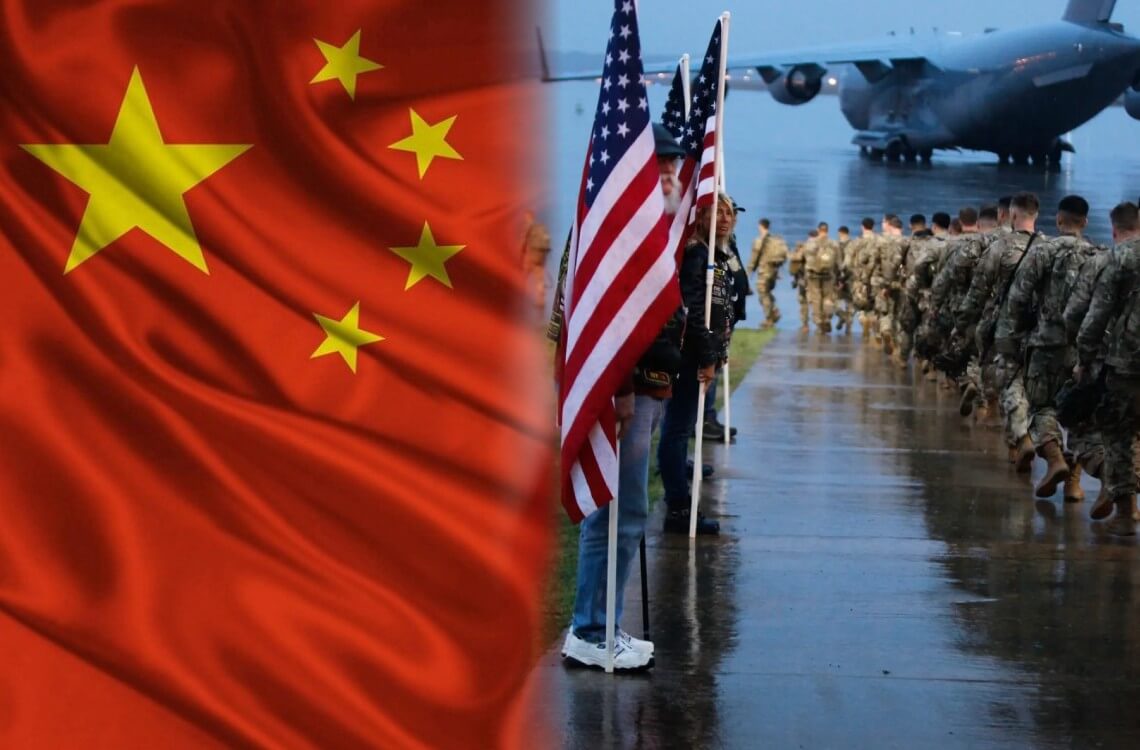The serene atmosphere of the Mimosa Plus Golf Course in Clark, just 92km north of Manila, witnessed a transformation in April. For the first time since the conclusion of the Cold War, more than a hundred American soldiers returned to an area that once served as the world’s largest air base outside the U.S. boundaries.
This apparent resurgence of American military presence signaled a renewed commitment from the U.S. to strengthen its stance in the Indo-Pacific region.
U.S. increasing Military Exercises: The Hidden Message
Part of a large annual military exercise named Balikatan, meaning “shoulder to shoulder,” these troops were an integral component of a 17,600-strong force.
This extensive drill was no mere practice, but a key part of a broad, multi-faceted strategy from the Biden administration to address perceived threats from China in the region.
The escalating activities have dispelled initial concerns about the potential softening of America’s stand on China under the new administration.
Instead, Biden’s measures—ranging from stringent security to export controls aimed at restricting China’s access to advanced semiconductors—paint a picture of a U.S. foreign policy that remains committed to a firm approach towards China.
Additionally, his administration has made significant strides in persuading initially hesitant European allies to take a stronger position on China.
Ely Ratner, the Pentagon’s leading Asia official, speaks of “extraordinary alignment” amongst U.S. allies. The Indo-Pacific strategy documentation, joint drills, and exercises reveal a concerted effort to enhance deterrence through a more “latticed” security architecture.
The U.S. is actively working to overcome the geographical disadvantage, often referred to as the “tyranny of distance”, by positioning its forces more effectively across the expansive Indo-Pacific region, which makes up over half the planet.
The recent agreement with Manila allowing the U.S. military access to four additional bases in the Philippines represents a significant advancement.
These new locations, three of which are on the northern main island of Luzon, near Taiwan, indicate a significant shift from the previous Philippines administration’s China-leanings under Rodrigo Duterte.
Rebooting the Asia Pivot: A New Era of Collaboration
This move represents a single strand in the larger fabric of America’s renewed Asia “pivot”, a policy initiative introduced by President Barack Obama in 2011.
Unlike the initial pivot, the new iteration, often referred to as “pivot 2.0”, carries greater weight and involves increased European involvement.
The U.S. has been encouraging its Asian allies, such as Japan and South Korea, to provide more support, while also urging European nations to heighten their presence in the Indo-Pacific region.
Despite these security measures, doubts persist about the U.S.’s capability to halt China’s ascendancy in the region. Critics argue that the Biden administration’s approach has been overly militaristic, lacking a robust economic strategy to counterbalance
China’s influence. Nevertheless, the U.S. is constantly innovating its military approach, with strategies including the deployment of a more mobile and dispersed force less vulnerable to Chinese missiles and the adoption of an “agile combat employment” model for rapid deployment.
Bottomline is the U.S.’s increased military activities and newly fortified alliances near China’s border signal a strategic pivot in the region, alluding to a more assertive approach towards maintaining balance in the Indo-Pacific region.
However, it remains to be seen whether these tactics will be sufficient to check China’s increasing military clout.





